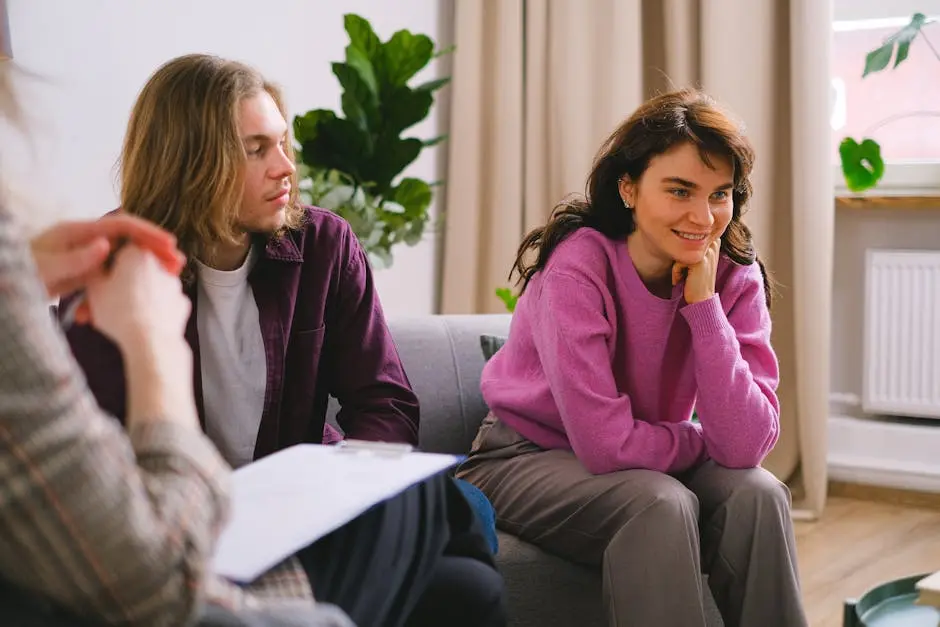What Should Couples Expect from Couples Counseling?
Couples counseling can be a crucial step towards improving relationships and resolving conflicts. Whether you're facing communication issues or seeking to understand each other better, knowing what to expect can help ease the process. In this blog, we'll explore the key aspects couples should anticipate from counseling sessions.
What is the Purpose of Couples Counseling?
The main objective of couples counseling is to provide a safe space for partners to express their feelings, understand each other better, and address any underlying issues affecting their relationship.
Couples counseling aims to help partners reconnect by facilitating open communication. This process often uncovers patterns that need to be addressed or changed to make the relationship healthier.
Many couples attend counseling to tackle specific issues such as trust breaches or recurring arguments. Rebuilding Trust is a complex but essential part of the counseling process, especially when past grievances have caused significant emotional damage.
How Do Sessions Typically Begin?
Sessions often start with an initial assessment where the therapist will ask questions to understand the dynamics of your relationship, individual concerns, and common goals for seeking counseling.
During the first session, therapists aim to create a comfortable and non-judgmental environment. They may ask each partner to share their perspective on the issues at hand to form a comprehensive picture of the relationship dynamics.
It's not uncommon for both partners to feel a little nervous during the initial sessions. However, knowing that the therapist is there to facilitate understanding, not to take sides, often helps ease any tension.
What Techniques are Commonly Used?
Therapists use various techniques such as active listening, communication exercises, and conflict resolution strategies to help couples work through their differences and improve their relationship.
A popular method used in couples counseling is Emotionally Focused Therapy. This approach focuses on building a stronger emotional bond between partners, helping them to navigate their emotions in a healthier way.
Solution-focused approaches are also pivotal in counseling sessions. Couples learn how to identify problems more efficiently and develop strategies to manage or overcome these challenges together.
What Role Does Communication Play?
Effective communication is often at the heart of successful couples counseling. Therapists emphasize the importance of open and honest dialogue between partners to facilitate understanding and conflict resolution.
Learning to communicate empathically can transform a relationship. It's about more than just talking—it's about truly listening. Active Listening Exercises often play a crucial role in enhancing communication skills between partners.
The therapist may introduce partners to communication techniques like 'I' statements, which focus on expressing personal feelings rather than placing blame. This can dramatically reduce defensiveness and misunderstandings.
Are There Homework Assignments Involved?
Yes, therapists may assign homework to help couples practice new skills outside of sessions. This could include exercises to improve communication or activities to rebuild intimacy.
Homework assignments serve as an extension of the work done in therapy sessions. They provide opportunities for practice, helping reinforce positive habits and skills learned in counseling.
For example, a therapist might recommend setting aside time each week for 'date nights' to foster reconnection, or journaling to better understand personal emotions and responses.
How Long Does Counseling Usually Take?
The duration of counseling varies depending on the couple's specific needs and goals. While some couples may see improvement in a few sessions, others might require a longer commitment.
On average, therapy sessions might range from eight to twenty sessions. However, this can differ significantly based on the complexity of the issues being addressed.
It is essential for couples to understand that lasting change often takes time and patience. In some cases, ongoing sessions over several months can provide the deep-seated change couples are seeking.
In Summary
Couples counseling is a proactive approach to strengthening relationships, fostering understanding, and resolving conflicts. By entering the process with an open mind and clear goals, couples can expect to gain valuable insights, improve their communication skills, and build a stronger foundation for their relationship.

